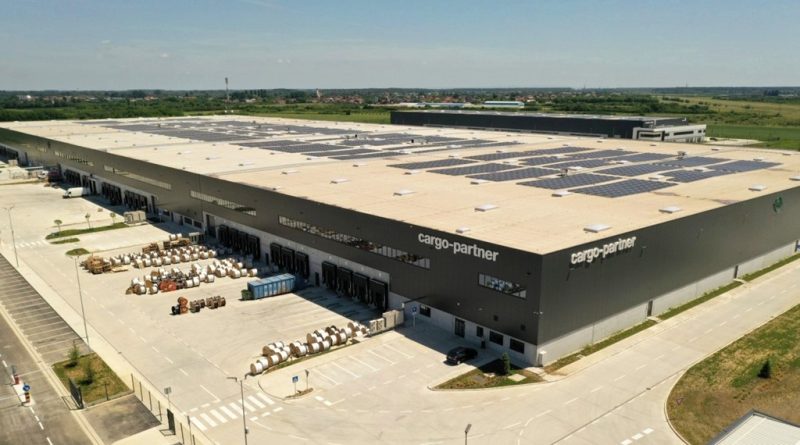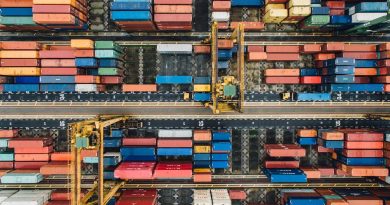ESG concept in transport – Does green logistics really exist?
Today, every business has an impact on the environment, which is why environmental protection is more important than ever. Despite the fact that many industries will have a negative impact due to the consumption of a toxic or non-renewable resources, the fight for sustainable growth does not have to be lost.
One of these industries is logistics, but as we well know, this does not stop businesses from making other environmental contributions.
To begin, it is critical to be aware of the influence on the environment and not to avoid it, but to integrate social responsibility into the business’s basic mission. Monitoring, measuring, and analysis are followed by taking targeted action. CSR (Corporate Social Responsibility) has grown into a much broader ESG concept (Environment, Social Responsibility, and Governance) in recent years, according to which caring for the environment and society begins inside, i.e. within the company, with each set aim and later taken action.
We will learn what steps a business can take to give back to the community in which it operates in the coming sections, using the example of cargo-partner:
– Sustainability is at the core of our business principles. However, sustainable growth requires ongoing effort and dedication – it’s a marathon rather than a sprint. Since we are conscious of the negative effects that our industry has on the environment, we aim to identify environmentally friendly alternatives whenever we can – Nebojša Đekić, Sales and Business Development director cargo-partner Serbia.
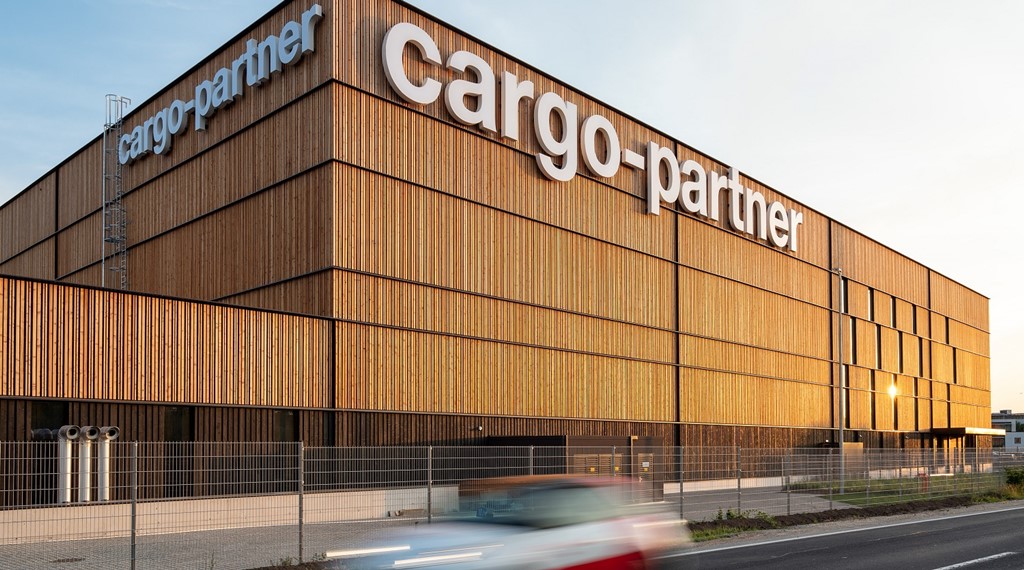
Wooden logistics facility
The logistics center at cargo-partner’s headquarters in Fischamend near Vienna Airport was built entirely out of wood, representing a lighthouse project for sustainable architecture. For its construction, 4,200 m³ of wood were used. Every cubic meter of wood that replaces other building materials reduces CO₂ emissions by an average of 1.1 t. In addition, timber constructions are massive carbon reservoirs: 0.9 t of CO₂ are stored in every cubic meter of wood. The company’s action resulted in a total decrease in carbon emissions of 8,400 t.
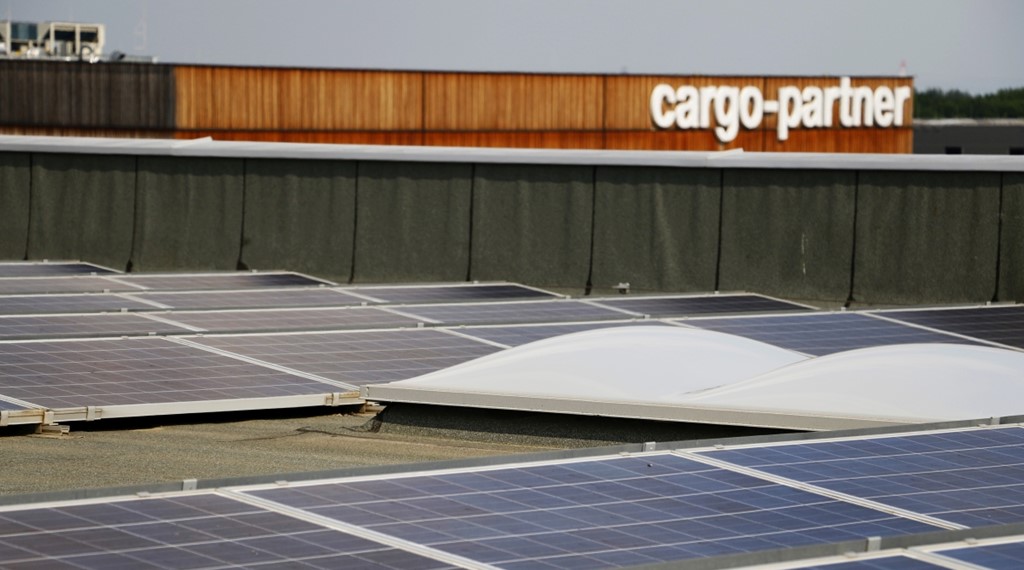
Photovoltaic systems
The usage of energy from non-renewable sources is decreased via photovoltaic energy generation. This “revolution” has also started in Austria, with the PV system that was installed at the company’s headquarters in 2015. In this way cargo-partner provides sustainable energy for approximately 100 households in Austria and has already saved over 2.1 million kg of CO₂ in the process.
The same steps are planned for all other countries of the cargo-partner global network. By the end of 2023, Slovenia and Serbia, two countries in the region, intend to have solar panels installed on the roofs of warehouses; Croatia, on the other hand, has already done so.
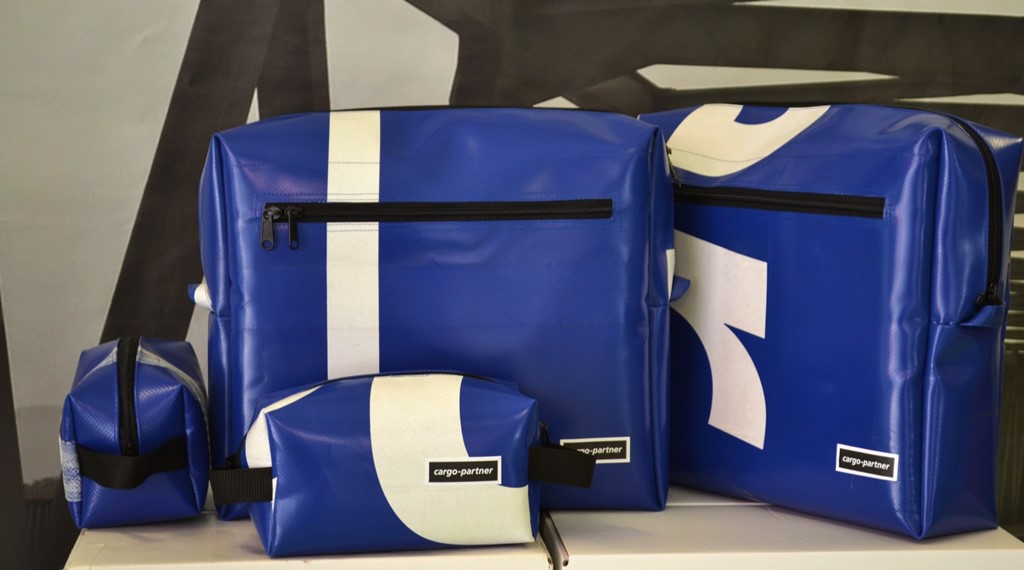
Upcycling of Used Truck Tarpaulins
Who says logistics companies can’t create new fashion trends? They gave outdated truck tarpaulins new life at cargo-partner. And that is the life of a modern bag such as messenger bags (shoulder bags), toiletry bags, doggy snack bags, and key chains. This action not only reduces waste but also allows for the employment of those who are socially disadvantaged.
cargo-partner forest
The first step was to implement Ecosia as the default search engine for all cargo-partner employees worldwide, which donates 80% of its advertising profits to tree planting. Another, but no less important, initiative in the summer of 2021 enabled the company’s clients to make their small contribution to the cargo-partner forest.
In particular, in collaboration with the Ecologi platform, the company planted one tree for every filled questionnaire on satisfaction and feedback on services.
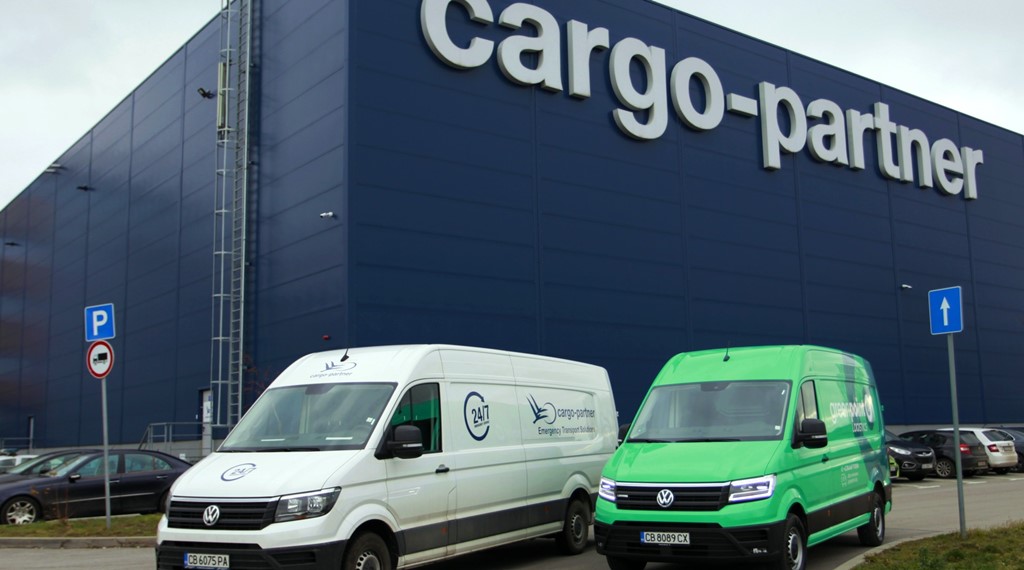
Innovations
Sustainable growth is nothing more than a better foundation for the development of generations to come. And its imperative is innovation, therefore cargo-partner continuously invests in research and development of new and more efficient forms of transport. But also means of transport, such as an airplane with blended wing body that increases the efficiency of fuel use by 25%. When innovations in the sector appear, their application is also necessary. Recently, cargo-partner Bulgaria started cooperation with a partner that will carry out domestic distribution with electric vehicles.
Digitalization
Digitalization has no boundaries, unlike natural resources. Modern IT solutions and reduced paper consumption through digitalization are ways to totally eliminate outmoded, environmentally unsustainable habits. As in this example, we see that economic and environmental sustainability often go hand in hand.
Goals for the future
The company aims to reduce carbon emissions by 40% by the end of 2030, but their efforts will not stop there.
Joint forces to sustainable solutions
At the very end, the initiative does not end within the company, but sustainable solutions and transport alternatives are promoted along the entire network, thus encouraging all partners, collaborators, and customers to the “green revolution”.
Fair business practices and transparent management are part of the ESG concept, as are initiatives to better the social community, such as humanitarian projects. Visit the following page to learn more about the operations of cargo-partner.


